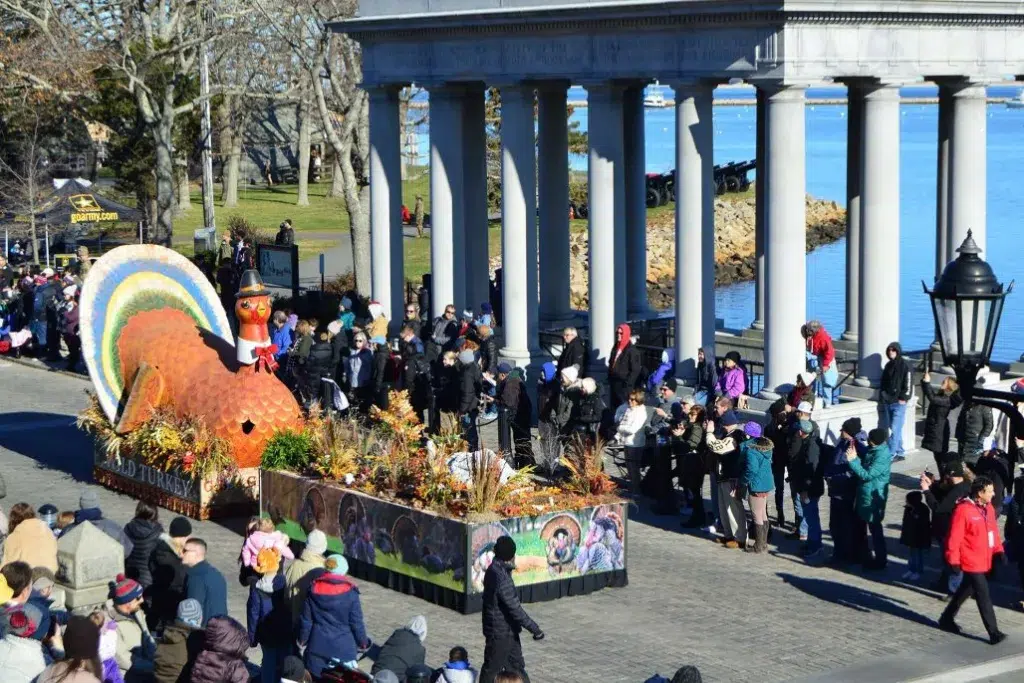
JGPR has been tasked with communicating and providing PIO support for a number of macro-level government events, from line of duty death funerals to state visits and dignitary speeches. Some of our most compelling work deals with communicating historic or historical events.
Communicating about historic events takes significant planning. The logistics are beyond estimation. We are the designated public safety PIOs for the America’s Hometown Parade in Plymouth, Mass., and we have been contracted the the Town of Lexington, Mass. for the Lex250 events, leading up to and commemorating the 250th anniversary of the Battle of Lexington and the first shots of the American Revolution. Media relations, crisis management and copywriting are all at play in these historically significant events.
Public Information Officers (PIOs) play a vital role in promoting history events in their agencies and communities. By efficiently leveraging time-tested communication strategies, they can engage the public, foster a deeper understanding of history, and encourage community participation and ensure that events are inclusive, accurate and enjoyable.
Here are 10 strategies PIOs can use:
- Leverage Social Media Platforms: Utilize various social media channels to reach a broad audience. Regular posts, live sessions, and interactive content like quizzes or polls related to historical events can engage the community and build anticipation for upcoming events.
- Collaborate with Local Schools: Partnering with educational institutions can help reach young audiences and educators interested in American history. Hosting essay contests, art projects, or interactive workshops can stimulate interest and participation.
- Utilize Traditional Media: Engage with local newspapers, radio, online news outlets and television stations to promote events. Press releases, interviews with historians or event organizers, and feature articles can attract attention and provide in-depth information about the historical significance of the events being promoted.
- Host Virtual Events: In addition to in-person events, consider hosting virtual tours, webinars, and online discussions. This approach can reach people who are interested in American history but are unable to attend in person due to distance or health concerns.
- Engage Community Leaders and Influencers: Partner with prominent figures in the community to promote events. The endorsements of local (or even national/international) elected, business, non-profit and arts leaders lend credibility and attract their followers or constituents to participate.
- Offer Interactive and Educational Content: Design events that are both informative and engaging. Interactive exhibits, reenactments, and guided tours can make history come alive and are more likely to draw interest.
- Highlight the Relevance of History to Contemporary Issues: Draw connections between historical events and current societal issues. This approach can make history feel more relevant and encourage community members to learn more about how the past has shaped the present.
- Utilize Email Marketing: Send out newsletters to a subscriber list with information about upcoming events, historical facts related to the event, and interviews with historians or event participants.
- Develop Partnerships with Local Businesses and Organizations: Collaborate with local businesses to promote events through their networks. They can offer discounts for event attendees or sponsor parts of the event, helping to broaden the event’s reach. Consider media sponsors who can provide in-kind promotional support.
- Measure and Adapt Strategies As You Go: Use analytics tools to track the effectiveness of different promotional strategies. This data can help refine future efforts, ensuring resources are directed towards the most impactful activities.
By implementing these strategies, Public Information Officers can significantly enhance the visibility and success of events in their agencies and communities, fostering a greater appreciation of national and local history.
